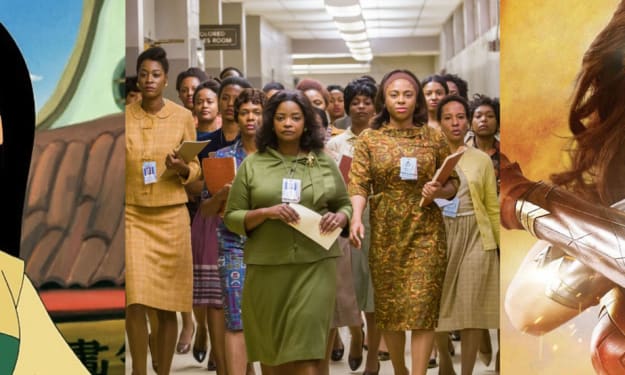Fantastic Men and Where to Find Them
Masculinity in Fantastic Beasts

Fantastic Beasts and Where to Find Them was not a perfect film, for me the script seemed unfocused as it jumped between the children's picture book-esque hunt for the escaped magic animals and the more serious (or should that be Sirius?) tale around Credence Barebone. Twenty years from now the film won't be as fondly remembered as the original Harry Potter series, but that's not to say there isn't anything groundbreaking about this film. What this film should be more lauded for is how it portrays Newt Scamander (Eddie Redmayne), the introverted carer who struggles with human relationships.
Newt Scamander is not your traditional blockbuster lead. He's not masculine in any traditional sense, he doesn't dominate a room or draw followers around him. He's quieter, restrained, sensitive and openly caring about nature. In the place of a hero like Harry Potter who is constantly learning, Newt is proficient at magic and confident in his abilities—so much so that he writes textbooks on his creatures. And so unbelievably, in 2016, one of the biggest films of the year was about a man who made a living writing textbooks. An unlikely action hero, Redmayne as Newt still effortlessly rises to portraying this leading man as a hero.
Film protagonists, particularly in action films (whether they be sci-fi, fantasy, or something else), are traditionally overwhelmingly male, both in sex and personality. They are usually strong and bold risk-takers who naturally demand attention in the epitome of what is traditionally thought of as masculine. Masculinity as a concept is socially and culturally driven, and typically can be defined by three traits: Courage, Independence, and Assertiveness; but in Fantastic Beasts, leading man Newt is a man defined by his empathy.
It's clear from the film's opening and Newt's journey to the bank that he is a man uncomfortable within human interactions. He's anxious, occasionally stuttering, and has a habit of keeping his eyes down when there's nothing to see. In any other film (typically in Paper Towns-esque teen movie), this introversion would be seen as a character flaw, something for our lead to grow out of by the time the credits roll. However instead of a journey of character growth, Newt's journey in Fantastic Beasts is one of proving himself, fixing up his messes, and showing his worth to the American witches and wizards who's opinions of him invariably begin negatively.
To the sisters Tina and Queenie, Newt's charm comes across through his endearing nature, revealed through his love for the creatures he protects in his larger-on-the-inside briefcase. Unlike his shyness around humans, the joy Newt finds amongst magical creatures shines out, as soon as he begins to talk about one his passion is instantly recognisable. Through such creatures he's found comfort and family, and so in return he cares deeply for the ones in his protection. That's not to say that Newt has a disregard for humans, his interactions with the nomaj (muggle) Jacob proves quite the opposite. It's revealed that Newt cares for the outcasts, those neglected or turned down by society, and wants to build them up in his own quiet way, whether by taking them across the Atlantic to fly free or giving them a briefcase of silver to start their own bakery with.
Similar to other leading protagonists, Newt arrives with his own troubled past, but where this film differs is through its refusal to use this past as driving motivation. Fantastic Beasts disregards this character trope as a motivational device and in doing so symbolises how it treats this lead protagonist. In multiplexes where leading men are traditionally bold and arrogant, Fantastic Beasts shows that films with vulnerable leads work too. In refusing to allow Newt to be defined by his past or his introverted nature, the audience are shown that these characteristics are nothing to be ashamed of.
Newt is meek but isn't relegated to the role of sidekick because of this. He is still allowed to take the lead, whether invited or not, in the events around him. As such, through this character of Newt Scamander, Fantastic Beasts proves that the trope of a clearly-masculine lead is an unnecessary one. Beyond this, as I said earlier, the concept of masculinity is driven by social and cultural ideas. And if a major Hollywood blockbuster can emphasise that for success there is no need for any overtly-masculine performances, then maybe cultural ideas about what it means to be a man can slowly change too.
About the Creator
Jae Calcutt
Jae is a writer, student and general nerd, currently living in Manchester, UK.






Comments
There are no comments for this story
Be the first to respond and start the conversation.